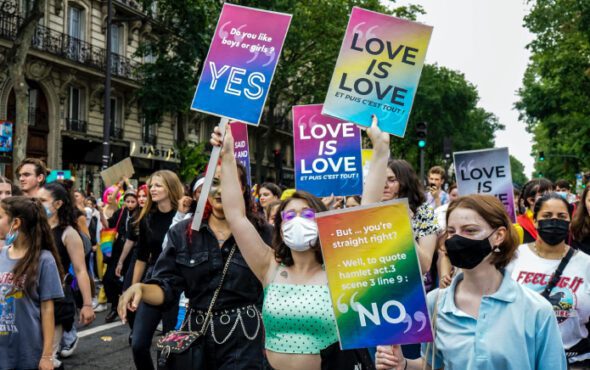
Newly-released data from the UK’s census has shown that being bisexual is almost as common as being gay or lesbian in England and Wales.
A total of 1.5 million respondents (3.2% of the population aged 16 years or older) said they identified as LGB+, with urban areas seeing the highest proportions of LGBTQ+ people.
Around 748,000 (1.5%) of those who answered said they are either gay or lesbian, only 0.2% more than the 624,000 (1.3%) who described themselves as bisexual.
An additional 165,000 (0.3%) selected “other sexual orientation”.
The data, which was released on 6 January, marks the first time that figures on sexual orientation and gender identity have been included in the census, with 92.5% of the population answering the question on sexual orientation and 94% responding to the gender identity question one.
“For the past two centuries of data gathering through our national census, LGBTQ+ people have been invisible, with the stories of our communities, our diversity, and our lives missing from the national record,” said Stonewall CEO Nancy Kelley.
“Today is a historic step forward after decades of Stonewall campaigning to record sexual orientation and gender identity in the Census, finally painting an accurate picture of the diverse ‘Rainbow Britain’ that we now live in, where more and more of us are proud to be who we are.”
We're making history 📢
The number of lesbian, gay, bi & trans people in England & Wales has been counted in the #Census2021 for the first time, after two decades of campaigning!
For two centuries, we've been excluded – now we’re officially part of a proud #RainbowBritain 🧵👇
— Stonewall (@stonewalluk) January 6, 2023
Data from the census also showed that a total of 262,000 people (0.5%) answered “no” to the question of whether their gender identity was the same as their sex registered at birth.
Findings from the 2021 census for England and Wales will be published in stages over a two-year period, while Scotland’s are expected later this year after it faced delays due to the COVID-19 pandemic.
No questions about gender identity were asked in Northern Ireland’s census, though results on its question about sexual orientation are also expected sometime in 2023.



